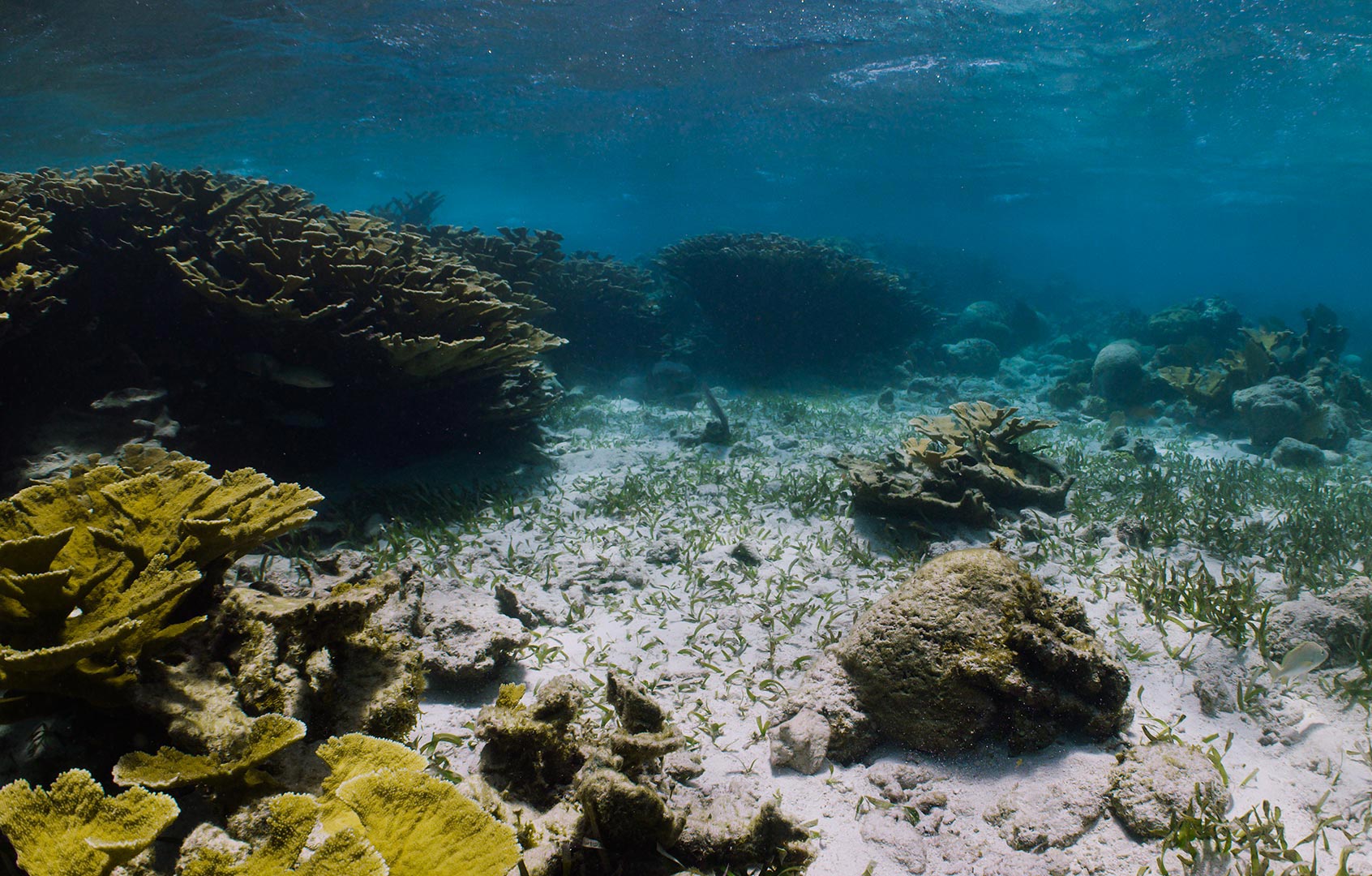Get involved
100% of your donation will go to support the work of the Turneffe Atoll Sustainability Association

Here we help you to learn about why coral reef ecosystems are important, what threats coral reefs face, and how we can protect them.
Coral reefs are living structures that preserve biodiversity, support livelihoods, protect coastal communities and offer diverse travel and marine wildlife experiences.
The importance of coral reefs to ocean wildlife and humans cannot be overstated.
As you watch, immerse yourself in the mesmerizing beauty of vibrant ecosystems, where tropical fish glide by. Travel to diverse locations, witness abundant marine life thriving within coral reefs, and discover the urgent work of scientists protecting these invaluable ecosystems. Unravel the fascinating lives of corals, their importance to Earth’s marine life, and the need for sustainable solutions. Join us on this remarkable journey to unveil the wonders of global coral reefs and contribute to their preservation for generations to come.
Credit: California academy of sciences

Coral reefs are natural underwater limestone structures made by small creatures called polyps. They’re the ocean version of an apartment block – they provide homes for many different living things. They have been compared to rainforests because of their biodiversity, importance to humans and the role they play in helping to limit the damage caused by climate change.
This refers to the many different species that live in or around reefs. It has been estimated that reefs are home to around 800 species of coral and perhaps 4 000 species of fish worldwide. If you also include the many other plants and animals found on reefs, up to 25% of all marine life depends on reefs. Turneffe is home to 48 corals and approximately 1300 fish species.
Coral reefs make up less than 0.1% of the ocean but contain 25% of marine species.
Coral reefs don’t only provide habitats for wildlife, they actually help to create new ones and protect other ecosystems. As coral slowly wears away, it makes sand for beaches. Coral reefs also reduce wave energy allowing beaches to stabilize and mangrove swamps to form.
Humans also get a lot of benefits from coral reefs — They create the sandy beaches we love to sunbathe on and produce much of the fish and other seafood we love to eat. It has been estimated that 1km2 of coral reef, if fished sustainably, can produce between 5 and 15 tonnes of food per year.
Researchers believe that important new medicines could be developed from coral reef creatures, and they are also a huge draw for travellers. In total, 275 million people live close enough to reefs for them to benefit in some way. Reefs also help protect coastlines from erosion and flooding by absorbing the impact of waves, something that is becoming more important.
Coral reefs are immensely important, but they’re also easily damaged by human activities including diver damage, anchors, overfishing and fishing with dynamite. Coral reefs can also be affected by pollution, and rising sea temperatures caused by global warming.
When the water gets too warm, coral bleaching can occur – the corals expel their symbiotic algae, which provide most of their food and they can die if the water remains warm for extended periods.
Increased carbon dioxide in the atmosphere can make the oceans more acidic, which is also bad for coral.
Marine Protected Areas (MPAs) are a great way to protect coral reefs. By limiting human activity to sustainable levels, MPAs can ensure that local people can still make a livelihood. They can also play a vital role in promoting responsible travel. You can learn more about MPAs by clicking here.
The Belize Barrier Reef, which includes Turneffe, is the second largest barrier reef in the world.
The Turneffe Atoll Marine Reserve - a protected marine area of regional and global importance that includes a mosaic of rich ocean habitats.
Turneffe Atoll is a biodiversity hotspot with an abundance of iconic, important and threatened species.
Following best practices in marine parks and protected areas helps responsible travellers do the right thing.
We can only save what we can understand, which is why science is so important for corals and reef ecosystems like Turneffe Atoll in Belize.
Marine Protected Areas (MPA's) are the ocean equivalent of a nature reserve on land – that is, a defined area that is legally protected.
100% of your donation will go to support the work of the Turneffe Atoll Sustainability Association
